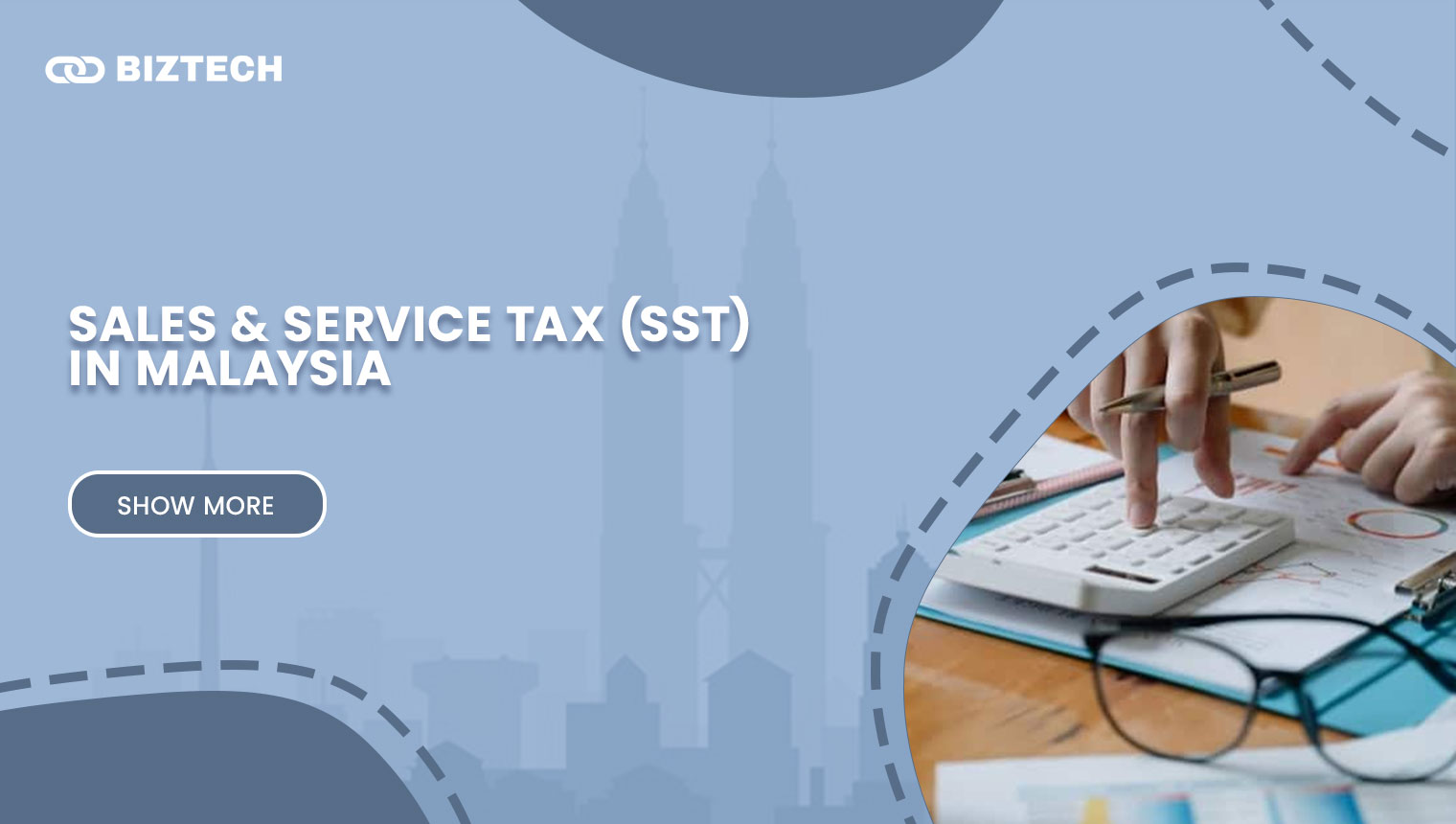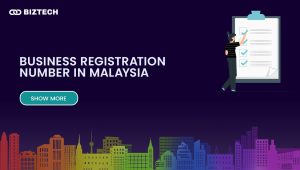Sales and Service Tax (SST) is an indirect tax system implemented in Malaysia on September 1, 2018, to replace the Goods and Services Tax (GST). The SST system consists of two components: sales tax, which applies to goods, and service tax, which applies to specified services. This transition aimed to simplify the tax structure and reduce the burden on consumers.
- Sales vs. Service Tax
- What is Sales and Service Tax?
- What Is Sales Tax?
- Sales Tax Rates in Malaysia
- Goods Subject to Sales Tax
- What Is Service Tax?
- Service Tax Rate
- Who Needs to Charge Service Tax?
- SST Taxable Services List: What’s Included?
- Registration Requirements for SST
- SST vs. GST: What’s the Difference?
- How to Calculate SST for Your Business
- Filing and Paying SST in Malaysia
- Exemptions and Refunds Under SST
- Goods and Services Exempt from SST
- SST Refund Process
- Conclusion: Staying Compliant with SST in Malaysia
- Frequently Asked Questions (FAQs)
Sales vs. Service Tax
Sales tax and service tax are distinct components of SST. Sales tax is levied on goods at the point of sale, while service tax is imposed on specific services provided by registered businesses. Understanding these differences is crucial for businesses and consumers alike, as it affects pricing and compliance obligations.
What is Sales and Service Tax?
What Is Sales Tax?
Sales tax is a single-stage tax applied to goods manufactured in Malaysia or imported into the country. It is charged at the point of sale to the final consumer.
Sales Tax Rates in Malaysia
The sales tax rates in Malaysia vary based on the category of goods, typically ranging from 5% to 10%. Certain goods may be exempt from sales tax or subject to different rates.
Goods Subject to Sales Tax
Common categories of goods subject to sales tax include:
- Electronics
- Automobiles
- Tobacco products
- Alcoholic beverages
Exemptions may apply to specific items like basic foodstuffs or healthcare products.
What Is Service Tax?
Service tax is a consumption tax imposed on taxable services provided by registered businesses within Malaysia. This includes a wide range of services offered in various sectors.
Service Tax Rate
The standard service tax rate in Malaysia is 6%, applicable to all taxable services unless specifically exempt.
Who Needs to Charge Service Tax?
Businesses that provide taxable services and exceed a revenue threshold of RM500,000 within 12 months are required to register for service tax. Some sectors, such as restaurants and cafes, have a higher threshold of RM 1.5 million.
SST Taxable Services List: What’s Included?
Overview of SST Taxable Services
SST encompasses a variety of taxable services across different industries. This includes sectors such as hospitality, telecommunications, and professional services.
Detailed List of SST Taxable Services
Here’s an easy-to-understand list of common taxable services under SST:
- Hospitality Services: Accommodation and food services.
- Telecommunications: Mobile and internet services.
- Professional Services: Legal, accounting, and consultancy services.
- Entertainment Services: Theme parks and recreational facilities.
Exempt Services
Certain services are exempt from SST, including:
- Educational services provided by recognized institutions.
- Healthcare services delivered by licensed practitioners.
- Financial services regulated by Bank Negara Malaysia.
Registration Requirements for SST
Who Needs to Register for SST?
Businesses must register for SST if their total sales value of taxable goods or services exceeds RM 500,000 within 12 months. Specific sectors may have different thresholds.
How to Register for SST
Registration can be completed online through the MySST portal. Businesses should ensure they provide accurate documentation during the registration process.
Consequences of Non-Compliance
Failure to register for SST when required can result in penalties or fines imposed by the Royal Malaysian Customs Department (RMCD).
SST vs. GST: What’s the Difference?
Key Differences Between SST and GST
The primary differences between SST and GST include:
Tax Structure: SST is a single-stage tax while GST was multi-stage.
Tax Rates: GST had a uniform rate of 6%, whereas SST has varying rates (5% to 10% for sales tax and 6% for service tax).
Why Did Malaysia Transition Back to SST?
The switch from GST to SST was driven by public sentiment against GST’s complexity and perceived burden on consumers. The government aimed for a simpler taxation system with clearer compliance requirements.
How to Calculate SST for Your Business
Step-by-Step Guide to Calculating SST
To calculate SST:
1. Determine whether your business falls under sales or service tax.
2. Calculate total sales or service fees.
3. Apply the relevant rate (5%, 10%, or 6%) based on the type of goods or services provided.
[su_box title=”Examples of SST Calculation” box_color=”#000877″ title_color=”#ffffff” radius=”6″]
For example, if a business sells goods worth RM 100,000 subject to a 10% sales tax:
Sales Tax Amount: RM 100,000 x 10% = RM 10,000
For service fees amounting to RM 50,000:
Service Tax Amount: RM 50,000 x 6% = RM 3,000
[/su_box]
Filing and Paying SST in Malaysia
Businesses must file their SST returns bi-monthly using the appropriate forms available through the MySST portal.
Payments should be made within 30 days from the end of each taxable period to avoid late payment penalties.
Businesses can submit their filings electronically through the MySST portal, ensuring timely compliance with regulations.
Exemptions and Refunds Under SST
Malaysia’s sales and Service Tax (SST) is a significant consumption tax that impacts both consumers and businesses. Understanding the exemptions available and the refund process is essential for compliance and effective financial management. This article elaborates on the specific goods and services exempt from SST and the procedures for obtaining refunds.
Goods and Services Exempt from SST
Certain goods and services are exempt from SST to alleviate the financial burden on consumers and promote essential industries. Here’s a detailed look at the categories of exemptions:
- Essential Goods:
-
- Food Items: Basic food items, including cereals, coffee, tea, meat, seafood, and eggs, are exempt to ensure affordability.
- Pharmaceutical Products: Medicines are exempted to promote public health.
- Books and Educational Materials: Publications such as books, magazines, and newspapers are also exempt to encourage literacy and education.
2. Logistics Sector:
-
- The government has introduced specific exemptions for logistics services to reduce transportation costs. For instance, logistics providers are exempt from SST when acquiring delivery or distribution services within designated areas or free zones.
- Ocean freight charges for goods transported between Peninsular Malaysia and Sabah/Sarawak/Labuan are also exempt.
3. Maintenance Services:
-
- Maintenance services related to residential buildings, including repairs of residential properties and maintenance provided by developers or resident associations, are exempt from SST. This exemption aims to reduce living costs for residents.
4. Exported Goods:
-
- Goods manufactured for export purposes are exempt from sales tax, supporting Malaysia’s export-oriented industries.
- Specific Non-Taxable Goods:
- Other items like fertilizers, insecticides, disinfectants, wood pulp, and waste paper also enjoy exemptions under SST regulations
SST Refund Process
Businesses that overpay their SST obligations have the right to apply for refunds through a structured process established by the Royal Malaysian Customs Department (RMCD). Here’s how the refund process works:
1. Eligibility for Refunds:
-
- Businesses can claim refunds if they have made excess payments due to calculation errors or misinterpretations of taxable supplies.
2. Application Procedure:
-
- To initiate a refund claim, businesses must complete the appropriate refund application form as specified by RMCD.
- The application should include supporting documents such as proof of payment, tax invoices, and any other relevant documentation that substantiates the claim.
3. Submission Timeline:
-
- Refund applications must be submitted within a specified timeframe after the overpayment is identified. Businesses should adhere to these deadlines to ensure their claims are processed efficiently.
4. Processing Time:
-
- Upon submission, RMCD will review the application and supporting documents. The processing time may vary, but businesses can typically expect updates regarding their claims within a reasonable period.
5. Receiving Refunds:
-
- If approved, refunds will be issued through bank transfers or other methods as determined by RMCD.
Conclusion: Staying Compliant with SST in Malaysia
Understanding the nuances of Sales and Service Tax in Malaysia is essential for compliance. Key aspects include knowing applicable rates, identifying taxable goods and services, adhering to registration requirements, and filing obligations.
Businesses are encouraged to consult with tax professionals for tailored advice regarding their specific circumstances related to SST compliance.
Read also: Corporate Tax Rate in Malaysia: A Comprehensive Guide
Frequently Asked Questions (FAQs)
Disclaimer: This article provides general information about Sales and Service Tax (SST) in Malaysia. For specific advice tailored to your business needs, please consult a qualified tax professional.






